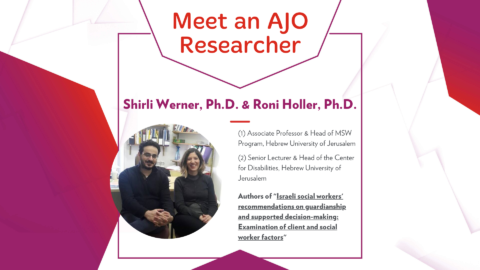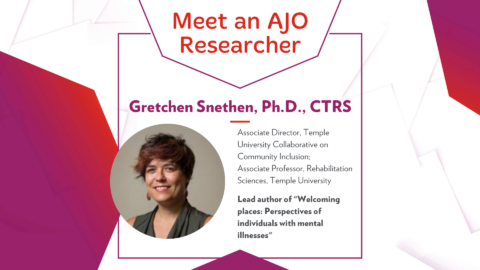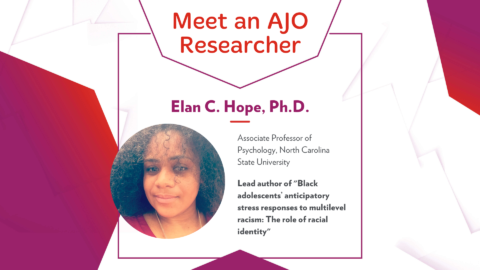Blog / AJO
- AJO (13)
- Alliance in Action (33)
- Alliance News (6)
- Coming Together for Action (CT4A) (10)
- Did You Know? (1)
- GA Resources (6)
- Impact Series (2)
- Looking Back, Moving Forward (2)
- Perspectives (8)
- Policy & Advocacy (102)

Meet an AJO Researcher: Jae A. Puckett, Ph.D.
Meet Jae A. Puckett, Ph.D.— Assistant Professor in the Department of Psychology at Michigan State University, Director of the Trans-ilience: Transgender Stress…

AJO 92(3) Contents
Editors: Jill D. Mcleigh and William Spaulding Articles in AJO, Volume 92, Issue 3 Out-of-home placement, sleep problems, and later mental health…

AJO 92(2) Contents
Editors: Jill D. Mcleigh and William Spaulding Articles in AJO, Volume 92, Issue 2 Strengths despite stress: Social-structural stressors and psychosocial buffers…

Meet AJO Researchers, Shirli Werner and Roni Holler
Meet Shirli Werner, Ph.D., Associate Professor at the Paul Baerwald School of Social Work and Social Welfare and Head of the MSW…

AJO 92(1) Contents
Editors: Jill D. Mcleigh and William Spaulding Articles in AJO, Volume 92, Issue 1 Social-cognitive mediators of the relationship of media exposure…

Meet an AJO Researcher: Lauren Hindt
Meet Lauren Hindt, Ph.D.—Pediatric Neuropsychology Postdoctoral Fellow at the University of Minnesota Twin Cities and lead author of the AJO article “Ecological disruptions…

AJO 91(6) Contents
Editors: Jill D. Mcleigh and William Spaulding Articles in AJO, Volume 91, Issue 6 Group identification attenuates the effect of historical trauma…

AJO 91(5) Contents
Articles in American Journal of Orthopsychiatry 2021, Volume 91, Issue 5

Meet an AJO Researcher: Sophia Fantus
Lead author of the AJO article “Promoting a positive school climate for sexual and gender minority youth through a systems approach: A theory-informed qualitative study.”

Meet an AJO Researcher: Gretchen Snethen
Meet Gretchen Snethen, Ph.D.—Associate director of the Temple University Collaborative on Community Inclusion, associate professor in the Recreational Therapy program within the…

Meet an AJO Researcher: Elan C. Hope
Meet Elan C. Hope, Ph.D.—Associate Professor of Psychology at North Carolina State University and lead author of the AJO article “Black adolescents’ anticipatory…

Meet an AJO Researcher: Robin Kowalski
Meet Robin Kowalski, Ph.D.—Centennial Professor of Psychology at Clemson University and lead author of the study published in AJO, “Racial differences in…
